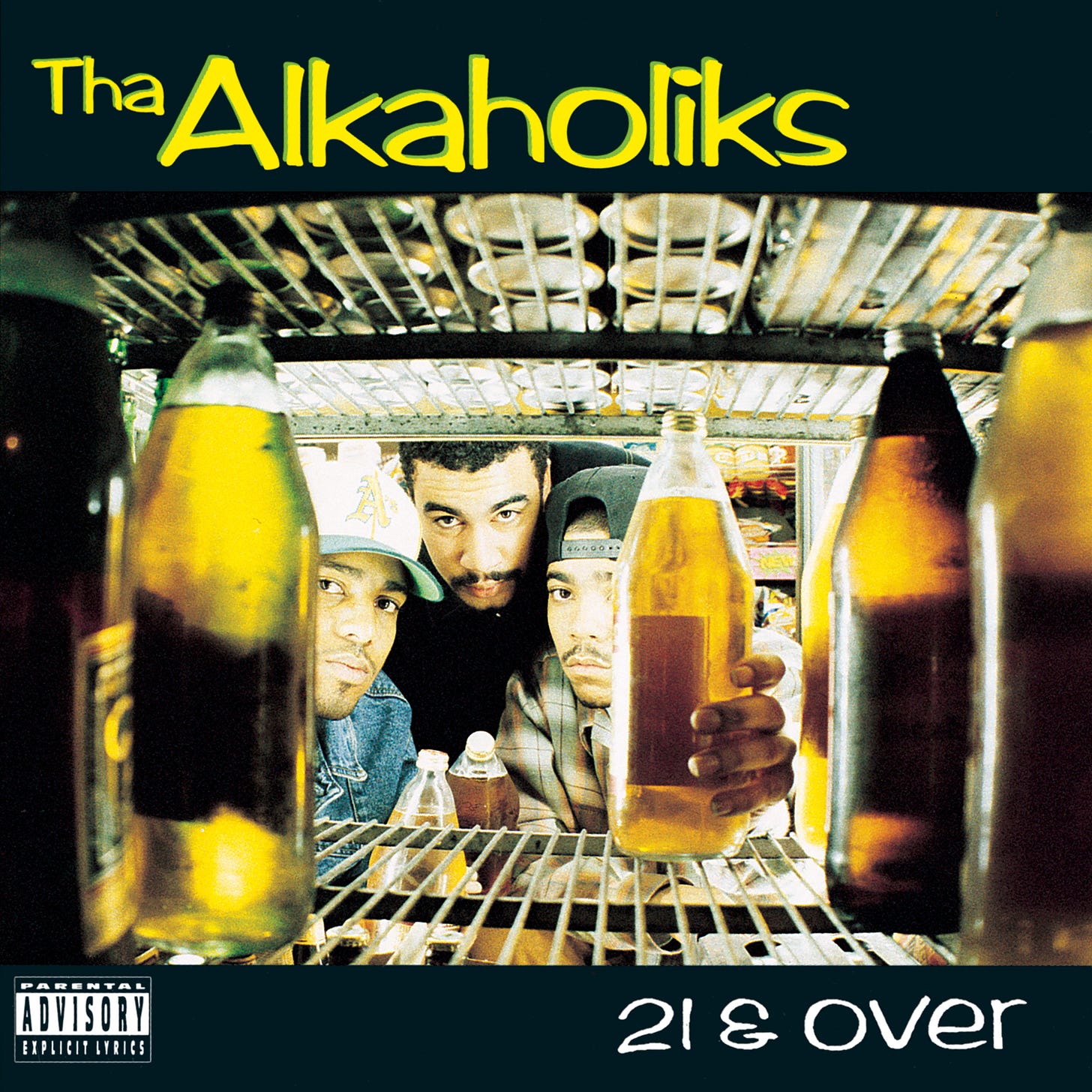Cheers to Tha Alkaholiks: 30 Years of 21 & Over
Celebrate 30 years of Tha Alkaholiks' debut album, 21 & Over. A cult classic that redefined party music without losing its edge.
A common misunderstanding about hip-hop with a “party” vibe is its supposed simplicity. Many believe that to make the crowd dance and the lyrics must be brought down to a fundamental level. But the essence of hip-hop has always been to move crowds through the words and the rhythm. Tha Alkaholiks offered exceptional party beats without bowing to popular trends, staying faithful to the core of hip-hop.
Originating from the Los Angeles hip-hop culture, Tha Alkaholiks were formed by Tash, J-Ro, and DJ E-Swift. King Tee, a trailblazer in the area’s hip-hop community, mentored these guys. The group, with J-Ro and E-Swift, debuted on two songs on King Tee’s Tha Triflin’ Album, most notably on “I Got It Bad, Y’all,” the lead single.
Tha Alkaholiks’ debut album, 21 & Over, is an engaging listen, entertaining without sacrificing its integrity. With top-notch lyrics and finely tuned beats meant to energize, J-Ro and Tash emerged as two of the smarter emcees of their time, while E-Swift’s production skills remain underappreciated. With ten songs running just over 36 minutes, the album is concise and never dull.
21 & Over starts with “Likwit,” a continuation of sorts to the earlier “I Got It Bad, Y’all.” As King Tipsy concludes the track, all three members deliver strong verses, joined by their guide. The production on “Likwit” is stellar, utilizing an organ sample from Lou Donaldson’s rendition of “Ode to Billie Joe.” E-Swift expertly manipulates the sample, weaving in horns, flutes, and keys that filter in and out of the song.
“Make Room,” the first single from 21 & Over, showcases Tha Liks at the height of their creative powers. E-Swift crafts an energetic yet sophisticated track, layering sharp horns, a mellow bassline, and deep organs. J-Ro adds two enjoyable verses, and Tash displays the skills that would later make him one of the overlooked emcees of the 1990s.
“Only When I’m Drunk” is a lively track that showcases the group's knack for creating engaging music. E-Swift crafts an intoxicating sample of the renowned “Seven Minutes of Funk” break, augmenting it with additional keys and horn jabs. This is a perfect backdrop for all three emcees narrating their tipsy escapades. J-Ro kicks off the song with his rap, mimicking someone who’s heavily intoxicated—slurring words, belching, and almost throwing up throughout his verse.
21 & Over is replete with instances where the group flexes its lyrical muscles alongside their tales of drunken revelry. “Last Call,” one of the album’s best tracks, features Tash and J-Ro showcasing their exceptional verbal skills over a flexible bassline that bounces along to a sample from James Brown’s “Payback,” punctuated by bursts of horns. This song was among 1993’s finest in terms of pure lyricism alone.
The album also marks some early musical contributions from Oxnard’s The Lootpack—Madlib and Wildchild—on vocals and production duties. It includes some initial major label releases featuring Madlib productions, which were more traditional jazz-infused hip-hop creations back then than his now-famous unconventional beats characterized by unquantized drums.
Madlib and Wildchild make their vocal debut on “Turn Tha Party Out,” exchanging verses with all three members from Tha Liks in an impressive display despite being newcomers at that time, making it an enjoyable track nonetheless. The Lootpack also handled production duties on “Mary Jane,” which served as the third single release from this album, paying homage not to liquor but to another form of recreational indulgence—cannabis. Its mellow, jazzy undertones make it feel like a love letter dedicated towards ‘the good green.’
Tha Liks wrap up 21 & Over with energetic “Who Dem Ni**as,” marked by frenzied sonic elements making for a wild party anthem featuring Deadly Threat delivering an opening verse briefly. The South Central rapper got involved through King Tee, who had been instrumental in overseeing (and even producing) his solo work. Tha Liks’ verses are filled with braggadocio trash-talking throughout this concluding number, adding character overall narrative.
This debut set the stage for a successful career trajectory for Tha Liks. They continued honing the style approach they introduced here, resulting in memorable yet underrated series albums. Even after thirty years, their songs celebrating high-spirited revelry continue bringing smiles to any hip-hop enthusiast.


